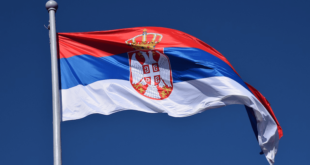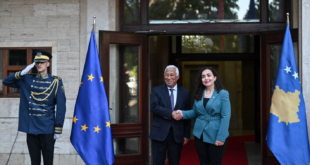Croatian Minister of Justice Ivan Simonovic and his Serbian counterpart Snezana Malovic have signed an agreement on the mutual extradition of persons suspected or convicted of crimes related to organised crime and corruption.
Speaking at a press conference today, the two dubbed the agreement a historic one for both countries.
They said that no other countries in the region nor in the world had signed such an agreement.
“This agreement meets the two goals of Serbian politics, which are European integration and the fight against organised crime and corruption,” Serbia’s Malovic said.
The agreement will enable Croatia to extradite Sretko Kalinic, one of the men found guilty in absentia for the murder of Serbian prime minister Zoran Djindjic in 2003. Kalinic was arrested in Zagreb earlier this month.
Croatian and Serbian justice ministers reached an agreement in May on the text of the extradition document. The final agreement on the issue was left to be signed once Croatia amended its constitution.
The Croatian parliament approved changes to the country’s constitution two weeks ago that allow Croatia to extradite its own citizens to the judicial authorities of other states based on international agreements.
Meanwhile, Serbian Interior Minister Ivica Dacic met with his Croatian counterpart Tomislav Karamarko in the northern Serbian town of Sombor on Monday to discuss cooperation in the fight against organised crime.
Dacic said on the occasion that Croatia is expected the extradition of Kalinic to Serbia to take place within the next four months.
“I expect that, based on the new testimonies of Kalinic and Milos Simovic, we will get new information on more than 20 serious crimes committed mostly in Serbia,” he said.
The extradition agreement is the first such agreement that Serbia has signed with any country.
According to Slobodan Homen, state secretary in Serbia’s Justice Ministry, negotiations on such agreements are underway with Italy and the U.S.
 Eurasia Press & News
Eurasia Press & News



